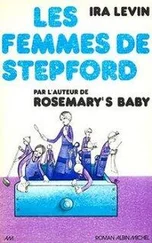Which meant that the October 16th victim had been either Chambon in France or Persson in Sweden.
Or someone else, whom Reuters had missed.
Or very possibly no one at all.
Ei, Barry, Barry! What did you have to call me for?
He walked a little faster, along the south side of crowded Frankenstrasse.
On the north side Mundt walked faster too, an unlighted cigar in his mouth, a folded newspaper under his arm.
Though the night was dry and clear, reception was poor, and what Mengele heard was, “Liebermann was crackle-crackle-squeal where Döring, our first man, lived. Lieber crackle-crackle about him, and he showed pictures of soldiers to crackle-crackle-SQUEAL-crackle Solingen, doing the same thing in connection with a crackle-crackle died in an explosion a few weeks ago. Over.”
Swallowing back the sourness that was churning up into his throat, Mengele pressed the mike button and said, “Would you repeat, please, Colonel? I didn’t get all that. Over.”
Eventually he got it.
“I won’t pretend I’m not concerned,” he said, mopping his icy forehead with his handkerchief, “but if he’s gone on to check on someone we had nothing to do with, then obviously he’s still in the dark. Over.”
“ Crackle Döring’s apartment, and it wasn’t dark there . It was four in the afternoon and he was there for close to an hour. Over.”
“Oh God,” Mengele said, and pressed the button. “Then we’d better take care of him right away, just to be safe. You agree, don’t you? Over.”
“We’re crackle the possibility, very carefully. I’ll let you know as soon as there’s a decision. I have a little good news too. Mundt crackle-crackle cond customer, on the exact date. Ditto Hessen. And Farnbach called in, not with questions, thank God, just with some surprising infor crackle-squeal seems that his second customer was his former commander, a captain who got himself a Swedish identity after the war. A funny twist, isn’t it? Farnbach wasn’t sure whether we knew or not. Over.”
“He didn’t let it stop him, did he? Over.”
“Oh no, he crackle-crackle days ahead of schedule. So that’s three more checks you can put on your chart. Over.”
“I think it’s imperative that we take care of Liebermann immediately,” Mengele said. “What if he doesn’t stop with this man in Solingen? If Mundt does it right, I’m sure it won’t cause any trouble, at least not any more than we’ve got already. Over.”
“If it’s done while he’s in Germany, I disagree. They’ll crackle-squeal-crackle country to show they’re being conscientious; they’ll have to. Over.”
“Then as soon as he’s out of Germany. Over.”
“We’ll certainly take your feelings into account, Josef. Without you, nothing; we know how crackle-crackle-squeal-crackle off now. Over and out.”
Mengele looked at the microphone, and put it down. He took the earphones off, put them down, and switched the radio off.
He went from the study into the bathroom, threw up his entire half-digested dinner, washed, and swished some Vademecum around in his mouth.
Then he went out onto the veranda, smiled and said “Sorry,” and sat down and played bridge with General Fariña and Franz and Margot Schiff.
When they left, he took a flashlight and walked down to the river to think. He said a few words to the man on duty and walked a ways downriver, where he sat on the side of a rusty oil drum—to hell with his trousers—and lit a cigarette. He thought of Yakov Liebermann going into the men’s homes; and of Seibert and the rest of the Organization brass facing a necessity and calling it a possibility; and of his decades-long devotion to the noblest ideals—the pursuit of knowledge and the elevation of the best of the human race—that might be robbed of its ultimate fruition by that one nosy Jew and that handful of weaseling Aryans. Who were worse than the Jew, because Liebermann, if one was fair about it, was doing his duty according to his lights, while they were betraying theirs. Or thinking of betraying it.
He tossed his second cigarette into the river’s glistening blackness, and with a “Stay awake” to the guard, walked back toward the house.
On an impulse he turned aside and pushed his way into the overgrown path to the “factory,” that path down which he and the others—young Reiter, von Sweringen, Tina Zygorny; all of them dead now, alas—had trooped so cheerfully on those long-ago mornings. Bending over the probing flashlight, he warded off broad-leafed branches, stumbled over arching roots.
And there it was, the long low building, the trees nibbling at it. The paint had scaled from its frame walls, every window was broken (the servants’ children, damn them), and a whole section of corrugated roof had fallen or been pulled from the dormitory end.
The front door gaped open, hanging away by its lower hinge. Tina Zygorny laughed her masculine laugh; von Sweringen thundered, “Rise and shine! You’ve had your beauty sleep!”
Only silence. Insects twanging, chittering.
Shining the light before him, Mengele went up the step and through the doorway. Five years at least, since he’d last set foot…
Beautiful Bavaria . The poster clung to the wall, dusty and rippled: sky, mountain, flowered foreground.
He smiled at it, and moved the light beam.
Finding gouged wallboard where shelves and cabinets had been ripped out. Stems of plumbing standing at attention. The wall with the brown spots that Reiter had burned into it, starting a swastika with his microscope. Could have burned the place down, the idiot.
He walked carefully around broken glass. A rotting melonrind, ants feasting.
He looked into barren rooms, and remembered life and activity, gleaming equipment. The sterilizer keened, pipettes clinked. Over ten years ago.
Everything had been taken out, junked or perhaps given to a clinic somewhere, so that in case the Jew-gangs got in—they were strong in those days, “Commando Isaac” and the others—they’d have no clues, no inkling.
He walked down the central corridor. Native attendants spoke soothing words in primitive dialects, trying to make themselves understood.
He came into the dormitory, fresh-smelling and cool thanks to its open roof. The grass mats were still there, lying in disarray.
Make what you will of a few dozen grass mats, Jew-boys.
He walked among them, remembering, smiling.
Something sparked white against the wall.
He went to it, looked down at it lying there in the flashlight’s beam; picked it up, blew at it, examined it on his hand. Animal claws, a circle of them; one of the women’s bracelets. For good luck? The power of the animals transferred to the wearer’s arm?
Odd that the children hadn’t found it; surely they played in here, rolled on these mats, had disarranged them.
Yes, good luck that this bracelet had lain here all these years so that he might find it on this night of fear and uncertainty, of possible betrayal. He clustered his fingers into it, shook it down around them, pushed at it with the wrist of his flashlight-hand; the claw-circle dropped down around his gold watchband. He shook his fist; the claws danced.
He looked about at the dormitory, and up through its broken roof at treetops, and stars that came and went among them. And—maybe, maybe not—at his Führer watching him.
I won’t fail you , he promised.
He looked about—at the place where so much, so gloriously much, had already been accomplished—and glaring, said aloud, “I won’t .”
“WE’VE ONLY ELIMINATEDfour of the eleven,” Klaus von Palmen said, cutting into a thick sausage before him. “Don’t you think it’s too soon to talk about stopping?”
Читать дальше











